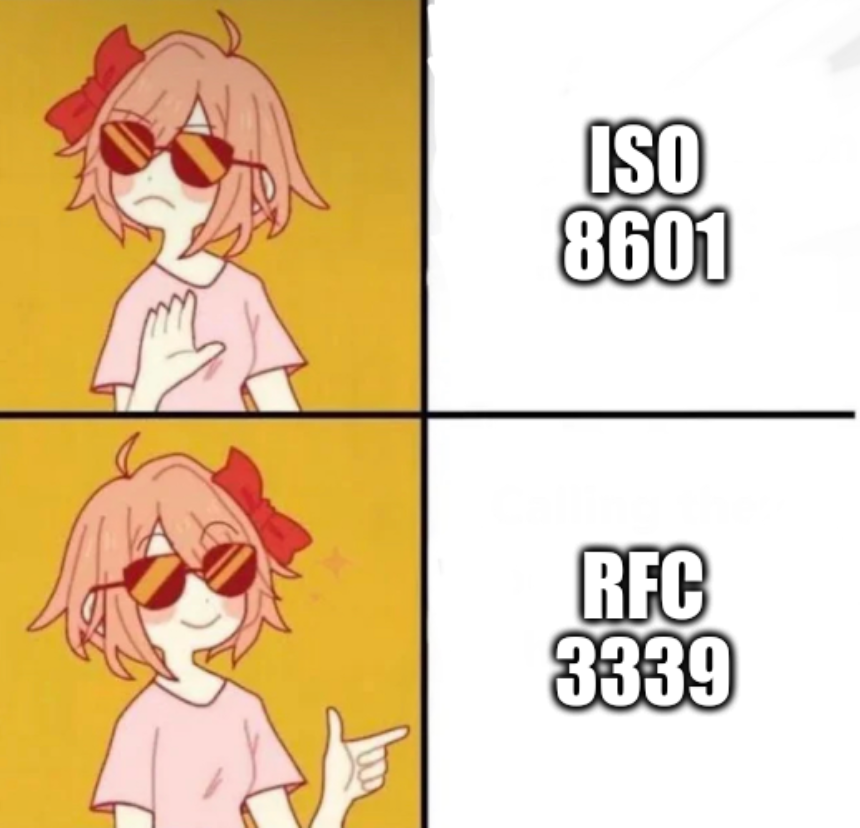this post was submitted on 12 Dec 2023
637 points (95.2% liked)
Memes
46792 readers
1545 users here now
Rules:
- Be civil and nice.
- Try not to excessively repost, as a rule of thumb, wait at least 2 months to do it if you have to.
founded 5 years ago
MODERATORS
you are viewing a single comment's thread
view the rest of the comments
view the rest of the comments

On the command line, space is what separates each argument. If a path contains a space, you either have to quote the entire path, or use an escape character (e.g. the
\character in most shells, the backtick in Powershell because Microsoft is weird, or the character's hexadecimal value), otherwise the path will be passed to the command as separate arguments. For example,cat hello world.txtwould try to print the fileshelloandworld.txt.It is a good practice to minimize the character set used by filenames, and best to only use English alphanumeric characters and certain symbols like
-,_, and.. Non-printable characters (like the lower half of ASCII), weird diacritics (like ő or ű), ligatures, or any characters that could be misinterpreted by a program should be avoided.This is why byte-safe encodings, like base64 or percent-encoding, are important. Transmitting data directly as text runs the risk of mangling the characters because some program misinterpreted them.
but what does the command line matter for dates? sure every once in a while you'll have to pass a date as an argument on the command line but I think usually that kind of data is handled by APIs without human intervention, so once these are set up properly, I don't see the problem
If the
datecommand returns an RFC-3339-formatted string, the filename will contain a space. If, for example, you want to iterate over the files usingfor d in $(find...)and forget to set$IFSproperly, it can cause issues.But
$(date)does return a string with spaces, at least on every system I've ever used. And what's so bad about the possibility of spaces in filenames? They're slightly inconvenient in a command line, but I haven't used a commuter this century that didn't support spaces in filenames.Bro, literally re-read the comment you replied to. It has an example of what might happen.
Ok, I just reread it. I don't see what you think I'm missing. You mean an improperly written find command misbehaving? The fact that a different date format could prevent a bug from manifesting doesn't seem like much of an argument.
Spaces can exist in filenames. The only problem is that they have to be escaped. As the comment that you reread explained,
cat hello world.txtwould print the fileshelloandworld.txt. If you wanted to print the file"hello world.txt"you'd either need to quote it (cat "hello world.txt") or escape the space (cat hello\ world.txt)Oh, the horror!
Both arguments are surrounded by
", which should be space-safe.At least in the shells I use, putting
"makes spaces inside paths a non-issue.For the
rsynccommand, yes. But this:will process the space-separated parts of each path as separate items. I had to work around this issue just two days ago, it's an obscure thing that not everyone will keep in mind.
Hm, I guess I just don't agree that CLI usablity comes before readability.
Again, it's not just CLI, it's an insurance against misinterpreted characters breaking programs.
honestly, if a space breaks your program, it's kind of a shit program.
Yeah? I once spent an entire week debugging a plaintext database because the software expected the record identifiers to be tokenized a certain way, but the original data source had spaces in those strings.
The software was the ISC DHCP server, the industry standard for decades and only EOL'd a year ago.
Sounds like a weekend that you could have saved if the software was just implemented properly and accepted spaces.
Something being an industry standard does not necessarily mean it's good. Sometimes it just means it was the cheapest, or sometimes even just because it was used for so long. How long did it take for Torx to somewhat replace philips head screws despite being better in most cases?
I think date strings are made for human and machine readability. Similar to XML or JSON. So, why not improve systems so that we can have more human readable date strings? If you don't care about human readability and want to make sure there is no confusion with spaces, you can just use epoch timestamps.